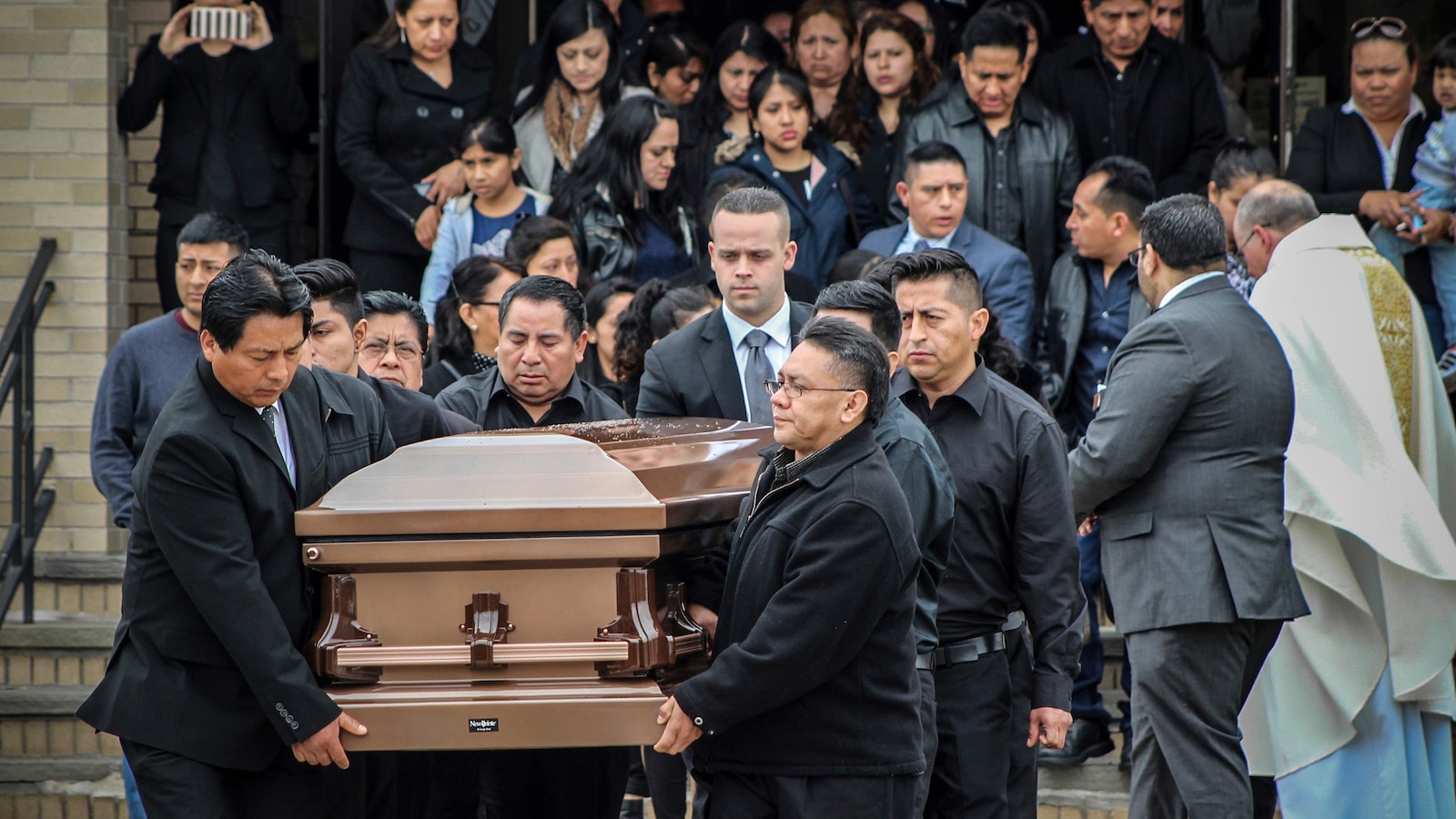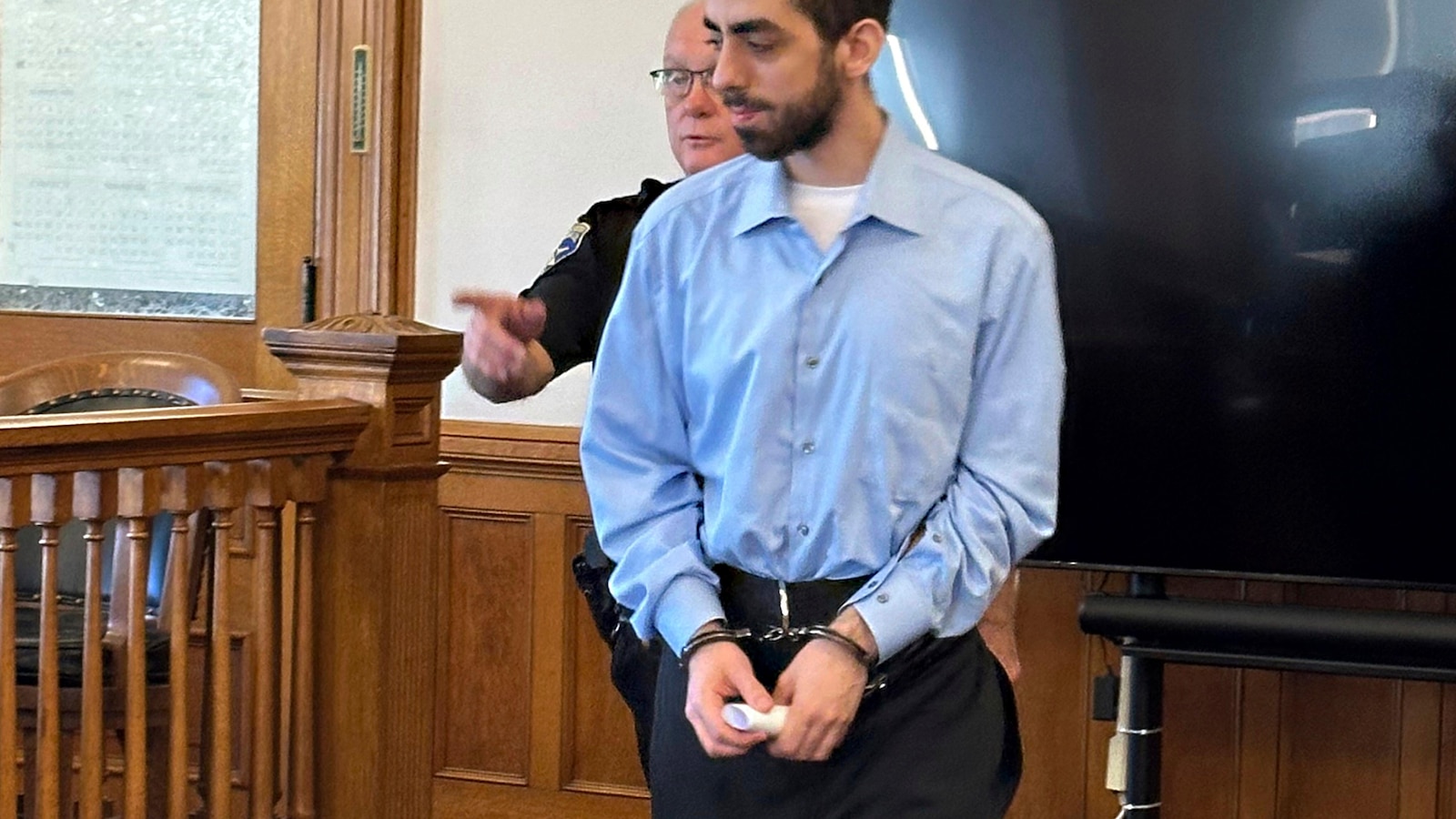
CENTRAL ISLIP, N.Y. — A woman associated with MS-13 was sentenced Tuesday to 50 years in federal prison for her role in luring four young men to be killed by more than a dozen members of the violent transnational gang in the New York City suburbs.
Leniz Escobar was a “critical player” at nearly every step of the April 2017 massacre, “willingly and enthusiastically” helping to plan and execute the horrific killing, in which gang members armed with machetes, knives and tree limbs ambushed the victims in a park on Long Island, declared U.S. Judge Joseph Bianco as he handed down his decision in Central Islip federal court.
The now 24-year-old, who was nicknamed “Diablita” or “Little Devil” among members of MS-13, was convicted in 2022 of one count of racketeering and four counts of murder in aid of racketeering.
Escobar said in court that she is reminded every day of the pain she’s caused.
“All I can do is hurt,” she said through tears. “Every breath reminds me that they are not here and their families are in pain. If I could trade places with them and take away that pain, I would.”
But parents and other relatives of the victims who spoke in court were unmoved.
“She does not deserve 50 or 60 years in prison. She deserves the death penalty,” Bertha Ullaguari, the mother of 18-year-old Jorge Tigre, said in Spanish through a translator.
Jason Tigre said his older brother was a mentor to him and was looking forward to graduating high school and going on to college before his life was cut short.
“Now I’m all alone and I’m trying to be strong for him,” the now 17 year-old said through tears. “This never should have happened, but it did because she did it. He should still be here.”
Escobar’s lawyer had argued for a sentence of no more than 32 years in prison, noting that she had been just at the cusp of 18 at the time and had already endured violence, sexual abuse, exploitation and human trafficking.
“From the time of her birth until April 2017, she had lived a horrible, terrible life,” defense attorney Jesse Siegel said. “The best years of her life have been the last seven years in custody.”
He also noted that she’d begun to turn her life around behind bars — earning her high school degree, leading Bible studies, and serving as a mentor and “positive influence” to fellow inmates with “wisdom beyond her years.”
But prosecutors, in arguing for a stiffer sentence of 65 years in prison, said Escobar had continued to maintain strong ties to MS-13 after her arrest, even coordinating the beating of another female gang associate for violating the gang’s code.
Assistant U.S. Attorney Megan Farrell also said it was Escobar that had set the massacre in motion by bringing photos on social media to the attention of gang leaders that were posted by one of the intended victims.
Escobar had felt “personally offended” that the victim had worn items typically associated with the gang and appeared to use the gang’s hand signs even though he was not an MS-13 member, she said.
Escobar then endeared herself to the victims, who had thought they were being invited to smoke marijuana at a park, according to Farrell. Then after the killing, she bragged to other MS-13 members about her role and instructed those involved to destroy evidence and evade police.
“She was one of the most culpable people,” Farrell said. “Without her, these murders would not have occurred.”
___
Follow Philip Marcelo at twitter.com/philmarcelo.
A member of the notorious gang MS-13 has recently been sentenced to 50 years in prison for his involvement in a string of violent crimes. The gang member, whose name has not been released to the public, was convicted of multiple charges including murder, drug trafficking, and racketeering.
MS-13, also known as Mara Salvatrucha, is one of the most dangerous and violent gangs in the United States. The gang originated in Los Angeles in the 1980s and has since spread to other parts of the country, as well as Central America. MS-13 is known for its brutal tactics, including using machetes to carry out executions and engaging in human trafficking.
The member who received the 50-year prison sentence was part of a larger criminal enterprise that operated in several states. The gang member was responsible for carrying out orders from higher-ranking members, including committing acts of violence against rival gang members and individuals who crossed the gang.
The sentencing of this MS-13 member sends a strong message to other gang members that law enforcement will not tolerate their criminal activities. It also serves as a reminder of the devastating impact that gangs like MS-13 have on communities, particularly those with high rates of gang-related violence.
The 50-year prison sentence is a significant punishment for the MS-13 member, but it also raises questions about the effectiveness of long prison sentences in deterring gang activity. Some experts argue that harsh sentences do little to address the root causes of gang involvement, such as poverty, lack of education, and limited opportunities for employment.
In addition to incarceration, it is important for communities to work together to prevent young people from joining gangs in the first place. This can be done through programs that provide at-risk youth with positive alternatives to gang involvement, such as mentorship programs, job training, and access to mental health services.
While the sentencing of the MS-13 member is a step towards holding gang members accountable for their actions, it is clear that more needs to be done to address the underlying issues that contribute to gang violence. By working together to provide support and resources to at-risk youth, we can help prevent future generations from falling into the cycle of gang activity and violence.


